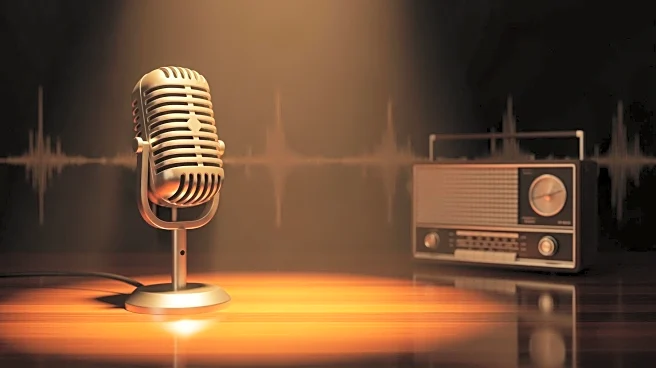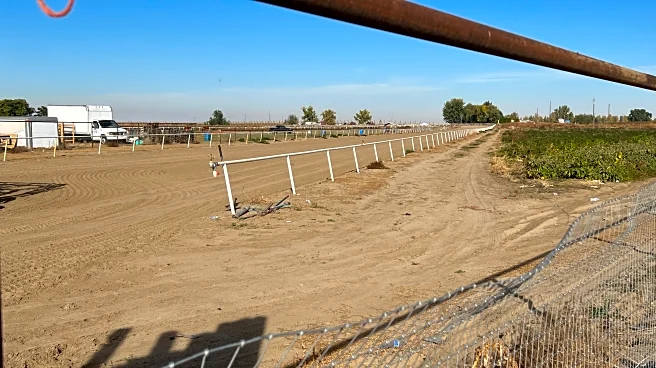What's Happening?
Tim Davie, the outgoing Director General of the BBC, delivered a defiant speech defending the broadcaster against allegations of bias. In his address to staff, Davie described the BBC as 'the very best
of society' and criticized those he termed 'enemies' of the corporation for stoking bias allegations. He acknowledged mistakes made by the BBC but warned against the 'weaponization' of criticisms. Davie's comments come amid ongoing scrutiny of the BBC's editorial policies and its role in public discourse. His resignation has sparked discussions about the future direction of the broadcaster and its ability to maintain impartiality in a polarized media landscape.
Why It's Important?
Davie's defense of the BBC is significant in the context of increasing challenges faced by public broadcasters worldwide. As media organizations navigate accusations of bias and political pressure, the ability to uphold journalistic standards and impartiality is crucial for maintaining public trust. The BBC, as a prominent global broadcaster, plays a vital role in shaping public discourse and providing reliable information. Davie's comments highlight the need for media organizations to address criticisms constructively while safeguarding their editorial independence.
What's Next?
The BBC may face continued scrutiny and pressure to reform its editorial policies and practices. Davie's resignation could lead to changes in leadership and strategic direction, impacting how the broadcaster addresses issues of bias and impartiality. Stakeholders, including government officials and media watchdogs, may call for greater transparency and accountability in the BBC's operations. The broadcaster's ability to adapt to these challenges will be crucial in maintaining its reputation and influence.
Beyond the Headlines
The situation at the BBC reflects broader trends in media governance and the challenges of maintaining impartiality in an era of polarized public opinion. As media organizations grapple with accusations of bias, the ethical implications of editorial decisions and the role of public broadcasters in democratic societies are increasingly scrutinized. The BBC's experience may serve as a case study for other media entities facing similar challenges.










